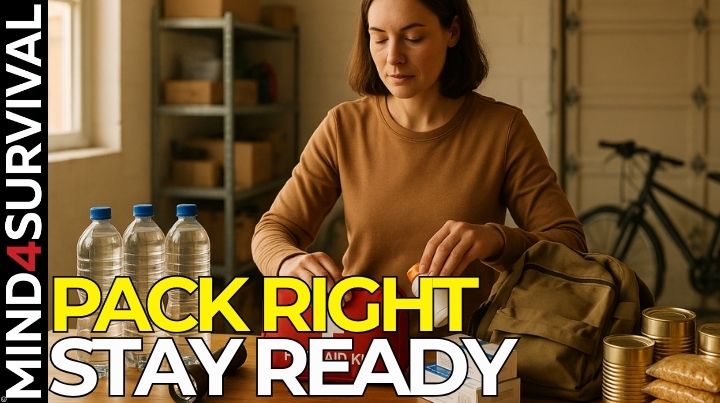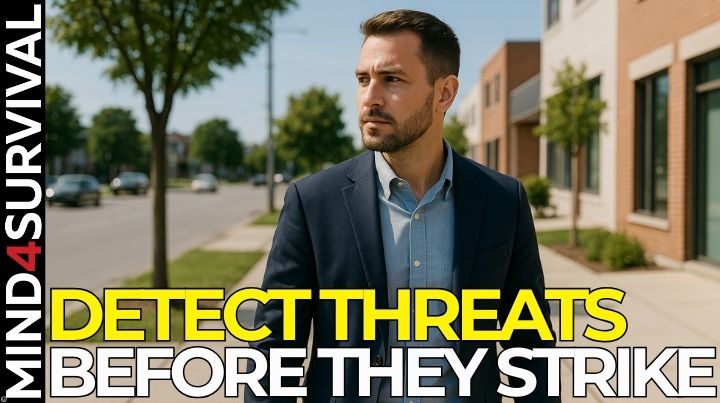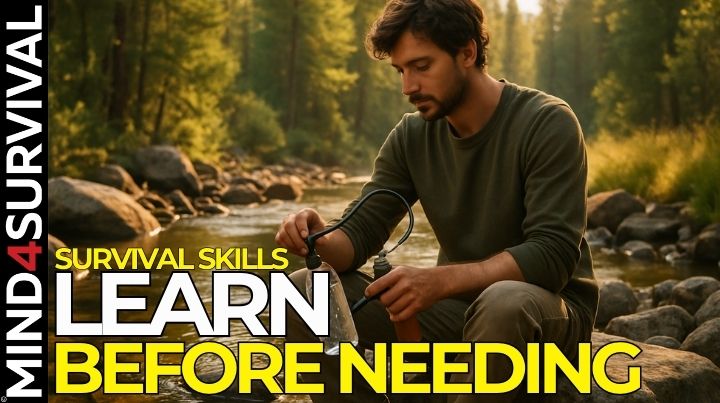Why Do Preppers Prep? The Real Reason Might Surprise You
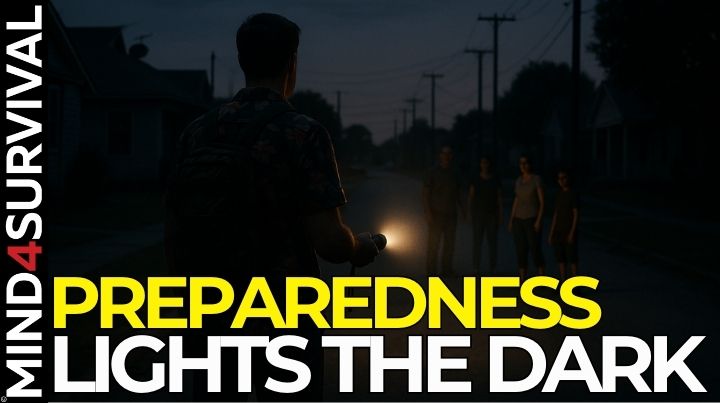
What If Help Doesn't Come?
A lot of folks wonder, “Why do preppers prep?” After all, the city, state, and federal governments will help us in an emergency, right? Maybe our neighbors will step up. Sure, they might. But what if they don't?
What if the same crisis that affects you also overwhelms the systems meant to help you? That “what if” is the core reason for preparedness. We prepare because we might be the only ones who can help ourselves—or others—when things go sideways.
Power outages, storms, job losses, and supply chain disruptions are real emergencies that catch millions off guard each year. Preppers don’t wait for crises; they plan and prepare.
This shift—from relying on others to taking personal responsibility—is what sets preppers apart. You don’t need expensive gear or extensive training to get started; it begins with the decision to look after yourself and your loved ones.
While we often assume help is readily available, history has shown that systems can fail unexpectedly. In moments of chaos, calmness and clarity are rare but powerfully welcome. Those prepared are better able to navigate challenges and support others.
Being prepared means you care about being part of the solution rather than part of the problem. You anticipate that things won’t always go according to plan, and you ensure that your loved ones and those in need can count on you. Preparedness is a crucial act of responsibility and generosity—when you're ready, you not only help yourself, but you can also help others who aren’t.
Insurance for the Unknown
Not everyone will experience a disaster. You might never face a major storm, crime, or power outage. But just like auto or health insurance, we don't buy it because we expect disaster. We buy it because of the “what if.”
- “I'm a great driver, but what if someone hits me?”
- “I rarely get sick, but what if I do when I'm far from help?”
Preparedness is life insurance for your resilience. It gives you peace of mind and the power to act when it matters.
Real-World Examples When Help Failed
Let's look at two recent examples:
- Montreal Snowstorm: 300 vehicles stranded overnight.
- I-70 in Colorado: 200 people stuck for hours in freezing conditions.
Both Montreal and Colorado regularly deal with snowstorms. Both have safety systems in place.
And yet, people were stranded.
Despite systems and resources designed to help, real life doesn't always go according to plan. Systems fail. Resources get overwhelmed. That's when being prepared makes the difference.
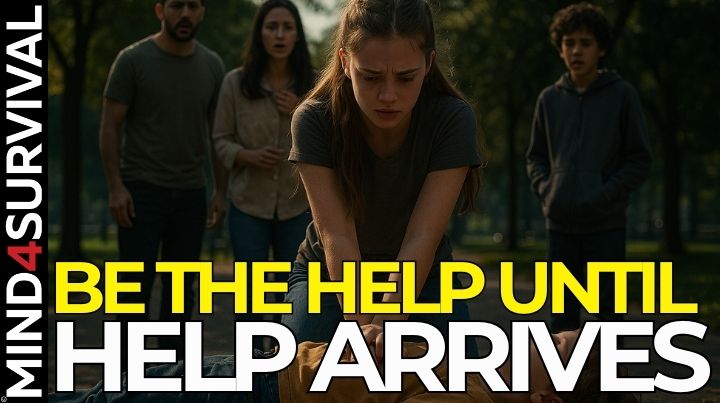
Prepping Saves Lives – Literally
Take 18-year-old Kaela Eads. She learned CPR in school. One day, a mother ran to her holding her lifeless son. Kaela didn't panic. She performed CPR. She saved his life.
Preparation isn't about stockpiles. It's about capability.
After Hurricane Harvey hit Houston:
- The Cajun Navy rescued an elderly woman floating face-down. Their training and readiness saved her life.
- Stranded bakery employees worked overnight baking bread to feed hungry survivors.
These people didn't wait to be told what to do. They were the help.
The Bottom Line: Why Do Preppers Prep
Too many people assume help will come. And often, it does—but not always fast enough, not always fully, and not always at all. Emergency systems are stretched thin. Supply chains can break. Sometimes, even the helpers need help.
That’s where the prepper steps in.
Preppers aren’t waiting for permission to act. They don’t assume someone else will take care of things. They take action in advance. And that doesn’t just serve them—it serves their families, neighbors, and communities. When the grid goes down or the roads are blocked, it’s the prepared who rise.
This isn’t about fear. It’s about capability.
Prepping is what transforms chaos into calm. It gives you agency in an uncertain world. It’s about knowing your kids will be warm, fed, and safe no matter what. It’s about helping someone else when everyone else is paralyzed. And it’s about reclaiming the confidence that only comes from competence.
Preparedness is about action. It's about confidence. It's about the ability to say:
- “I've got this.”
- “I can take care of my family.”
- “I can help my neighbor, not just hope someone else will.”
Whether it's knowing how to give CPR, having food and water in a blackout, or staying calm during chaos, preparedness turns regular people into heroes.
We don't prep because we're scared.
We prep so we don't have to be.
Have a story or example of how being prepared made a difference? Drop it in the comments below. Your story might inspire someone else to be the one who is ready.
Additional Resources
- Hurricane Harvey Stories – The Organic Prepper
- How to Get Started Prepping (Practical Tips)
- Are Preppers Crazy? How to Overcome the Stereotype
- 10 Essential Items to Stockpile for Preparedness
FAQs
TL;DR
Preppers prep because what if? The world is unpredictable. When help fails or is delayed, those who are prepared become the help. It's not about fear—it's about responsibility.
Why do most preppers prep?
Preppers prepare to be self-reliant in emergencies where help may be delayed, undependable, or unavailable. It's about readiness, not paranoia.
Do preppers actually help others during disasters?
Yes. From CPR to community aid after disasters like Hurricane Harvey and Helene, preppers often are the first responders.
What's the difference between prepping and anxiety?
Prepping is our intentional reaction to the potential reality of a future problem. Anxiety is our unintentional emotional reaction to our fear of a future problem. Therefore, Preparedness is the confidence boosting antidote to anxiety and worry.
Related Articles
FREE Guide
Read the Best Seller
Join Mind4Survival
Stay informed by joining the Mind4Survival! 100% Secure! 0% Spam!
Affiliate Disclosure...
Mind4Survival is a free, reader-supported information resource. If you make a purchase through our link, we may, at no cost to you, receive an affiliate commission.
Do You Want To Be Ready No Matter What?

Download our free 39-page guide with interactive, 7-Day Emergency Kit Checklist and take the first step toward real preparedness.
- Know exactly where to start.
- Save time and money.
- How-to build a complete Basic Emergency Kit.
- Level up your safety and security.
Join Mind4Survival
Stay informed by joining the Mind4Survival! 100% Secure! 0% Spam!

